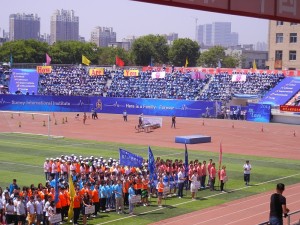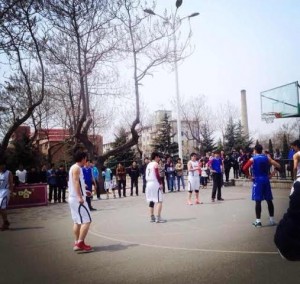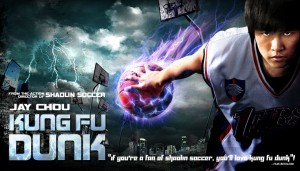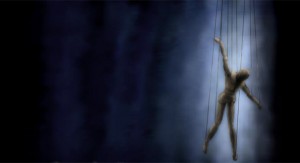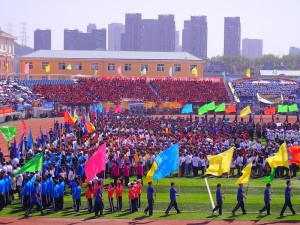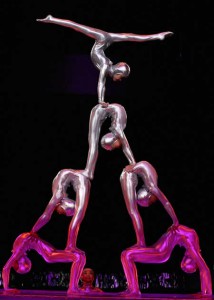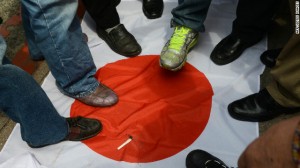Serendipity lives. Despite my love for the contents of my own little basement-bound library, I still find myself looking for (and believing in) the Right Book at the Right Time. I’m an accidentalist by literary nature: am I dialled in to the there are no accidents synchronicity of the spiritually wired world? Or grasping at the bookish straws of superstition? Take your pick.
But I have learned that I don’t need to pack much homefront reading material when I travel, because text will find me. Sure, too often it’s just that day’s sports or entertainment in another town’s newspaper, but it’s surprising how often I whimsically come across a text that I’d been looking for, or one that filled a need I didn’t know I had. Today’s example comes from an aimless stroll through my local library. Living in the big city now – and Ottawa is hugely sophisticated compared to all my tiny towns – libraries are a whole new deal for me. They’re better than the one at home. There’s great stuff everywhere. On my way to the periodicals, I was stopped by the fairly plain cover of a book featured on the end of a shelf. Why Read? was its title, and why not? was my magnetized reply.
It’s another book on the importance of reading, of course, and though I figured it would be overly familiar, the Ol’ Readin’ ‘n’ Writin’ Coach couldn’t pass it by. Published in 2004, its author, Mark Edmundson, is an American professor of literature. I was attracted by his choice of title, yes, and then by the Ralph Waldo Emerson quote with which he opens the book: “Books are the best of things, well used; abused, among the worst. What is the right use? What is the one end, which all means go to effect? They are for nothing but to inspire.” [my emphasis] In the face of a literary establishment that favours detachment, irony and deconstruction (and which he skewers with bitter eloquence), Edmundson takes an unabashedly antique position. “Reading woke me up,” he says, and made him a teacher. His beautifully written opening essay, “Literary Life”, lays out his thesis:
[L]iterature…is the major cultural source of vital options for those who find that their lives fall short of their highest hopes,…our best goad toward new beginnings, our best chance for what we might call secular rebirth. However much society at large despises imaginative writing, however much those supposedly committed to preserve and spread literary art may demean it, the fact remains that in literature there abide major hopes for human renovation.
You will see that Professor Edmundson is not one for the microscope, not an advocate for poetic alienation and identity politics.
“Books…are for nothing but to inspire.” Edmundson starts with Emerson, and builds from there a passionate and sweetly worded argument that is addressed firstly to those (his colleagues) who teach literature, and secondly to students who “read over the shoulders of your teachers”. He laments the loss of a truly liberal education in America: “Universities have become sites not for human transformation, but for training and for entertaining….[S]tudents use the humanities…to prepare for lucrative careers…[to] acquire marketable skills…[or as] sources of easy pleasure.” Edmundson, meanwhile, wants them to be MOVED, “to become other than they are”.
He insists on personal transformation as the basis of a true education. “’You must change your way of life,’ says Rilke’s sculpture of Apollo to the beholder. So says every major work of intellect and imagination, but in the university now – as in the culture at large – almost no one hears.” Mark Edmundson is gloomy about the way that his beloved literature has been used, torn asunder, isolated or completely abandoned in contemporary life, but goes on to suggest the ways it might be rehabilitated, and therefore help to rehabilitate us. He has something of the tone of the prophetic voice crying in the wilderness, and this emotional appeal combined with his reasoned and gorgeous prose lends it real credibility.
I was reminded of another citation of the great German poet Rainer Maria Rilke, this in the Canadian literary journal Brick. Included in the publishing data at the front of each issue is this statement of literary philosophy: “Works of art are of an infinite loneliness and with nothing to be so little appreciated as with criticism. Only love can grasp and hold and fairly judge them.” Professor Edmundson would surely approve my added emphasis, and he echoes this frankly ecstatic tone throughout this excellent book. Why Read? is a profound meditation and a call to ivory tower action. I wonder how many are listening.
